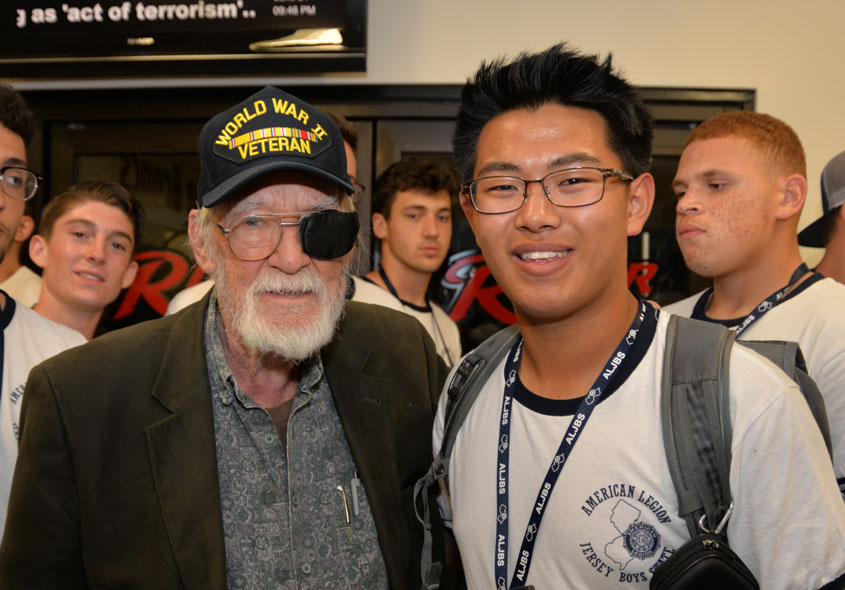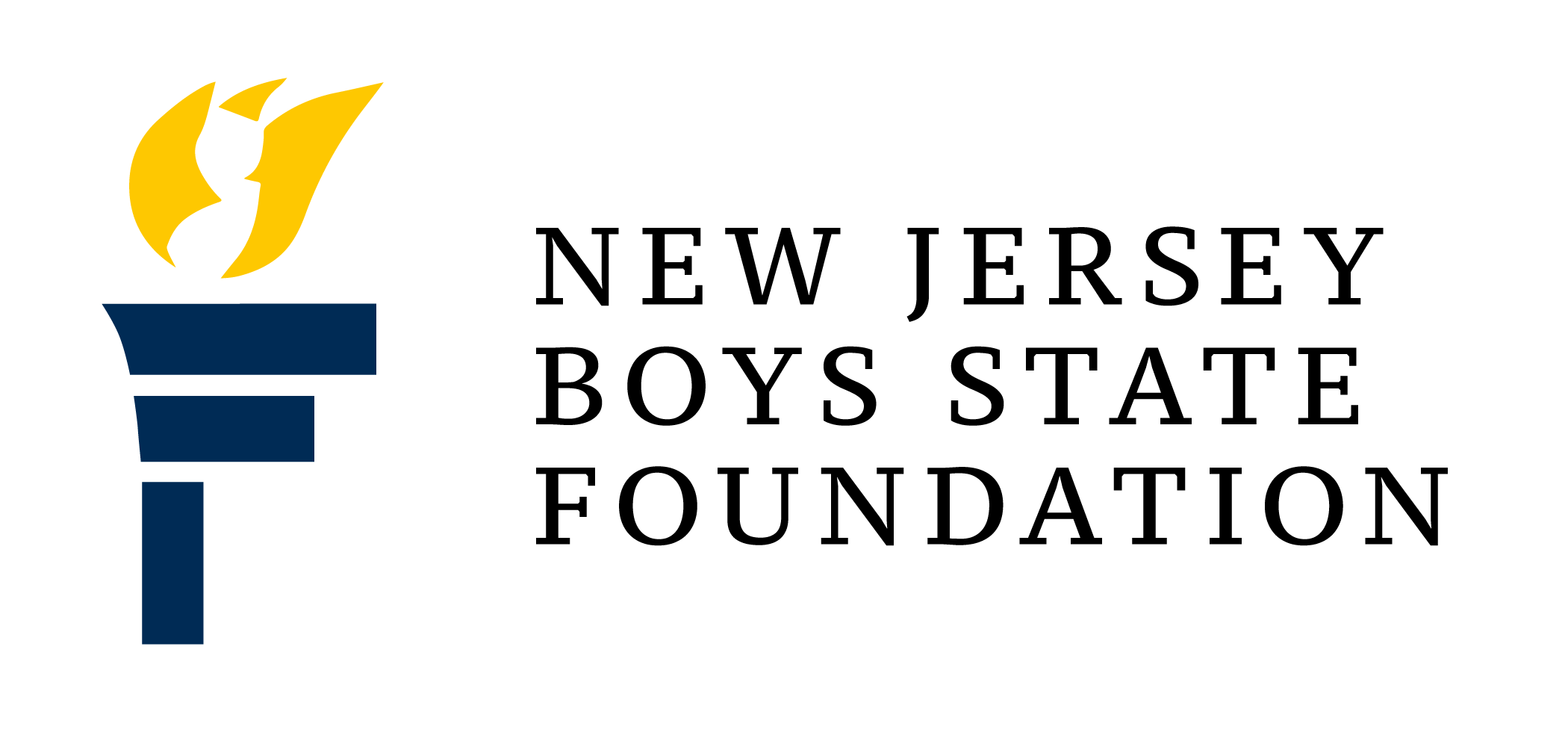News Archive

They come on Sunday, when the week is young. They are from all corners and crevices of the state, but they are now here. Away from all familiar landmarks, they peer uncertainly as they are told where they are to go. Their lanky frames move stiffly, unused to queues and seminars and the fatigue of a long day. No one they know is near them. Most are seventeen.
Soon, they will return to the places and families they love, from whom they have been separated for a time. They will be welcomed and questioned. People are eager to hear what they’ve seen, what their new part of the world was like, and how they’ve changed. They will be expected to resume their normal lives shortly, as if stepping back into a familiar place erases all memory of what had happened in the interim and changed the meaning of normal.
Normal, to an adult, is a place of settledness. Settledness, to a youth, is a word from a college test that will soon be past. Their normal is years in the future.
American Legion Jersey Boys State is a week that shapes the future. We rarely get to see what a statesman’s future is, but we are a point along his path. Every third Friday of June, our work ceases. We return our men to you, trusting—hoping—that what we’ve done will have meaning. The car rides home are a supercut of what we did or didn’t do, words we said or should’ve said, knowing that our chance is done. Time moves on. What happened this week is past. There is no second chance at this program.
What do you do with that feeling?
On Wednesday, before Charles Wiley addressed the entire Boys State, he gave a seminar entitled, “When America Went To War.” From the title, I expected a survey of how America’s attitude towards wars have changed over time. About thirty minutes in, I realized that this was wrong. Wiley was not focusing on all of America’s wars. He was focusing on World War II because it was when America, as an entire nation, went to war. “It was something that has never happened before and will never happen since,” he said. Wiley is 90. In 1941, he was 15. He enlisted. So did nine of the eleven service-age men in his family. This was not an unusual percentage. The men who didn’t enlist went to work in the war factories. The “normal” ones had shut down immediately. The older men also worked in the factories, as did the women. Income tax was 94%—only 94% because Congress convinced President Roosevelt away from 100%. The money went to the war, of course. Breakfast was often bacon, so that the grease could be saved and made into glycerin explosives. Civilian auto production went from thousands to a couple hundred. Story after story piled up. In some form, literally every part of America was fighting the war.
I glanced around at the 25 statesmen around me and suddenly realized that it would have been them. And me. There would have been no Boys State, no college. All of us, our generations, would have been sent to war as soon as we finished high school. How different it is to have a choice of college (as our statesmen got to experience on Tuesday) and a choice of career (as our statesmen have seen from our seminars throughout the week). In World War II, those choices didn’t exist.
Wiley’s generation is not called the Greatest Generation for nothing. His description of what happened after the attack is blunt: everyone just closed up and went to war. No debates. No discussion about how much is too much or whether the money would be better spent on other projects. None. The need was clear, and so was the call: go and serve.
Charles Wiley is an old man. A patch now resides over one of his glasses, and he moves more slowly than he did when I was a statesman. But his voice has lost none of its command. His mind is still vivid and sharp. I have no doubt that he would serve again if he were able and a need arose.
But Wiley is serving. He shows up each year, imparting his wisdom to younger men. In his era, the young men gave of their strength and the old men gave of their wisdom. Wiley is continuing that tradition today.
We, too, are continuing that tradition. American Legion Jersey Boys State exists to make better citizens and better leaders. We do this by teaching love of country, respect for veterans, service, leadership, and how to be part of a democratic society. We do not do this just to keep reminding ourselves of these things, helpful as that may be. We do this to continue the fight for liberty and justice for all to a generation beyond us. We do this because we see a need for it, so we come here and serve.
A successful week for ALJBS is not an alumnus going on to become President or famous in some way. A successful week is everyone taking these lessons to heart and becoming citizen leaders by serving wherever they are.
It’s a lot harder to keep track of that. Once people leave this campus, we usually don’t hear from them again. Did we succeed? We won’t know. Thus, the anxious car rides home.
For those of you who have just finished and are going home, unsure of what you just experienced (yes, we know it’s a blur of a week), a couple words of advice. First, take some time to think about what you learned and saw this week. There will always be things clamoring for your time. Set them aside, at least somewhat, to reflect on what you’ve seen. What stood out to you from the week? What did you learn about yourself? How will you apply that in where you are?
Second, remember that what you’ve seen here is a glimpse behind the curtain. Life is complex, and everything in it is too. Boys State is a chance to participate in a simple political and social system. Just as it was challenging to solve your city’s issues, it will even more challenging at home.
Third, remember that leadership and service take many forms but are often intertwined. As Boston Celtics coach Brad Stevens says, “The easiest way to be a leader is to grab a broom and start sweeping.” When you see a need, go and serve.
Fourth, remember the sacrifices of those who came before you and learn from them if they’re still around. Fathers, grandfathers, uncles, veterans, teachers…go find an older man and talk to them. Ask them for some advice. You won’t be disappointed.
Finally, answer the call when it is given. A generation is always coming, a generation is always going. To you from failing hands we throw the torch; be yours to hold it high.
The Greatest Generation sets a high bar for all of us. Their service created the opportunities we enjoy here today. But their service, like nearly all service, was mundane. See a need, go, and serve. That formula is not unique to that generation. Do you see a need? Go and serve. By doing that, you will lead. By doing that, you will keep the torch high.
Also, if you want a way to serve, may we suggest coming back on staff next year? You will see another side of the program, learn from working alongside a wise, wonderful staff, learn to fill the needs of your city and program, and help those after you have the same realizations you had. It’s a deeply rewarding experience. We’d love to do it with you.
Cheer for Our Boys and then cheer again,
They went from us lads, and came back to us men
Brave men with records as clean and as bright
As any who fought there “for God and the right.”
Cheer for Our Boys. Those who gave of their youth
All that they could give for freedom and truth.
Cheer them and cheer them, let hillsides respond
To greetings we give them from proud hearts and fond.
-Belle H. Reed


